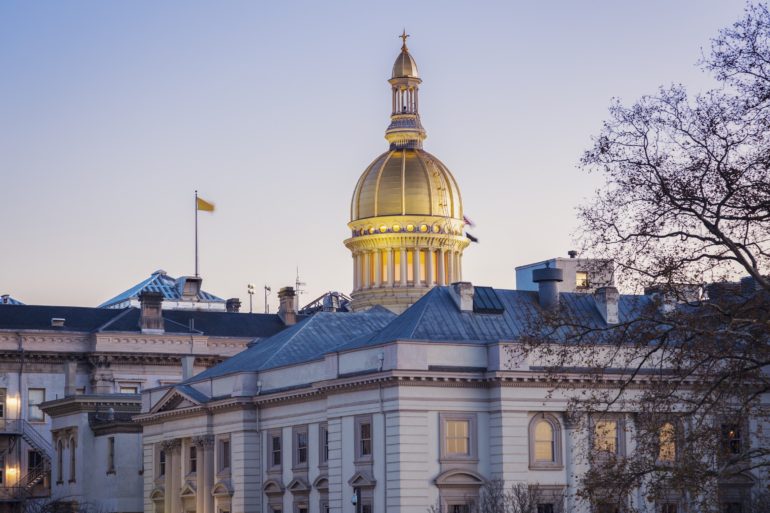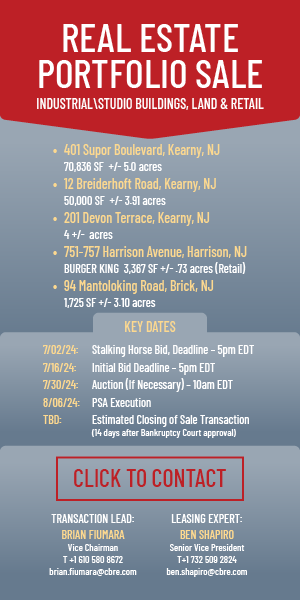The New Jersey Apartment Association has called for rental assistance since the earliest days of the pandemic, as it continues to defend against other legislative proposals that it says would have severe unintended consequences.
In part two of his two-part column, NJAA Executive Director David Brogan answers additional questions about the ongoing need for assistance and the complexity of disbursing it even after it has been approved. He also highlights the potentially devastating effects to both apartment owners and single-family homeowners if lawmakers take actions that further curtail rent revenue.

In the past, you’ve mentioned the property tax shift that could occur without assistance. How do you think the federal rental assistance will affect that problem?
Those in the industry understand this issue, but for those outside of it, it’s not so clear. There is a direct relationship between rent revenue and what is paid in property taxes by multifamily property owners. Both the pandemic and state policy are directly having an impact on our owners. The virus has negatively impacted tenants’ livelihoods and, on top of that, the eviction moratorium makes no distinction between COVID-impacted individuals versus non-impacted individuals and people are exploiting that flaw. Furthermore, the more rent revenue drops, the more likely tax appeals will be made by property owners. Quite honestly, those property tax appeals will be justified, and I believe they will be won or settled.
For example, if I pay $300,000 per year in property taxes and due to the pandemic and state policy, my rent revenue dropped dramatically, it is appropriate to reduce my property tax obligation. If that happens and let’s say I now pay $200,000 per year, the $100,000 difference must be made up by someone. That will fall directly onto homeowners. If you extrapolate that out to an industry that pays over a billion dollars per year in property taxes, the impact to homeowners will be significant.
To be clear, policies that directly reduce rent revenue will result in higher property taxes for homeowners. It is that simple. And legislation like the so-called “People’s Bill,” which creates ridiculously long repayment periods for unpaid rent, will only exacerbate the property tax shift. Legislators who understand this and do not want property taxes to unnecessarily increase on their homeowners, especially in an election year, would never support such a bill.
At the end of the day, the federal rental assistance will play a big role in addressing rent arrearages and help COVID-impacted tenants pay rent going forward. This, in turn, will mitigate the loss of rent revenue and the number of property tax appeals. If the Legislature can go further and provide rental assistance to impacted tenants who make more than the federal income thresholds, but are still middle class, then the potential problem diminishes further.
What are your biggest fears going forward?
I am trying to be optimistic, but clearly this last year has hit the industry hard. The three things I fear most are: the inability to disburse the federal rental assistance and the domino effect that could have; legislation that leads to more burdens or mandates being placed on landlords without commensurate assistance or financial support; and the uncertainty caused by both the pandemic and government policies.
First, we have part of the solution to assist tenants in need of rental assistance — we just need to get that money out. It is incumbent upon the governor and the Department of Community Affairs to efficiently and effectively disburse that money. If that doesn’t happen, it would be akin to having a vaccine syringe in your hand but never administering it. Additionally, we really need a middle-class rental assistance program. The federal funds are fantastic and they will be incredibly helpful, but there needs to be additional funds to help those in workforce housing. That can only happen if the state allocates or reallocates resources toward this effort. The money is there. We just need the will to appropriate it.
Second, the Legislature must understand what this industry has been through and limit legislation that places additional mandates without any assistance. Quite frankly, we have been treated differently than almost any other industry in the state. No one is telling the auto industry that car payments aren’t due. No one is telling grocery stores that people can take two carts of food and walk out the door or pay for that food over 30 months. We are the housing providers. We have been on the front lines of this pandemic from the beginning. Our employees were dealing with more sick people than the hospitals at certain points, yet we have been treated like we are the enemy. Quite frankly, the tenant advocates and other groups have it in their playbook to pit landlords against tenants. Their attempt to vilify landlords is an attempt to justify their existence. My hope is that the Legislature doesn’t fall for that fallacy. The enemy isn’t the tenants, it isn’t the landlords — the enemy is the virus. And government should address the issues caused by the virus in the most prudent way possible to avoid creating additional and sometimes avoidable problems.
Lastly, before COVID-19, I never would have thought that a virus could shut down the whole country or impact the world the way it did. Luckily, we have amazing pharmaceutical companies that have stepped up and come through when we needed them most. Government must recognize the role the multifamily industry plays in this state and keep that in mind when making policy. We house over a million New Jerseyans, we support over 50,000 jobs in New Jersey, we pay over a billion dollars a year in property taxes and we stimulate a significant amount of economic growth in municipalities throughout the state. State government must recognize this role and understand that placing more burdens on an industry that is already severely impacted by the pandemic will only drive up housing costs in a state that already has one of the highest costs of living in the country. As it pertains to the pandemic, as the governor has said, we are all in this together. If that is the case, public policies should reflect that mantra.
David Brogan is the executive director of the New Jersey Apartment Association. Click the link below to read part one of his column.
Brogan: Eviction moratorium, questions on rental assistance still loom over apartment owners










